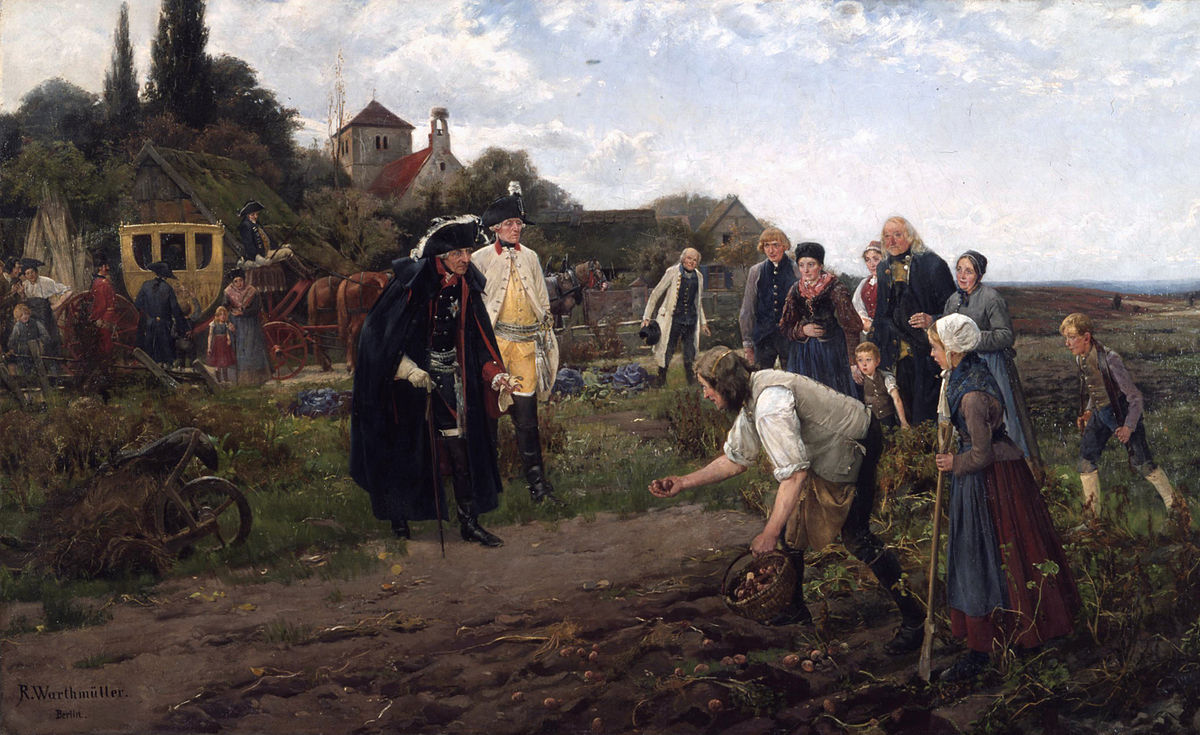How Frederick the Great Marketed the Potato

I love historical stories of great marketers who weren’t actually marketers (see my articles on Cicero, Aristotle, Cave Men). This week I discovered Frederick the Great’s Marketing Problem. He ruled Prussia from 1740-1786 and although he is probably best known for his military activities, he was also a great moderniser for social improvement and wealth creation.
When there was a risk of famine in Prussia, he introduced the potato which had only recently been brought over from South America by the Spanish explorers. This was easy to grow and promised to be a vital new food source. He even passed a circular order to ensure they were cultivated. Unfortunately the peasants were not too keen on the idea. In Prussia there was the saying:
“Was der Bauer nicht kennt, frisst er nicht.”
[What the peasant doesn’t know, he will not eat]
which has a rather familiar ring. To make things worse, the official response to the order from the town of Kolberg was:
“The things [potatoes] have neither smell nor taste, not even the dogs will eat them, so what use are they to us?”

So Frederick the Great had a Marketing Problem. It was a great product but his market did not want it. He struck on a classic marketing tactic that was later to be explained by Professor Cialdini in “Influence: The Psychology of Persuasion”: Scarcity. Frederick made the potato more appealing, not by promoting it but by taking it away. Scarcity or limited availability makes things more desirable. He had fields of potatoes planted around Berlin and ordered his army to mount guards around the fields in a high-profile show of protection to ensure the potatoes were not stolen.
This aroused plenty of interest, and as you can imagine it wasn’t long before the peasants wanted some. The guards were told off the record to take a nap or look the other way to allow the peasants to steal some potatoes. And this was the plan all along. As a result, potatoes became widely cultivated and are now very firmly established in the Austrian and German diet!
We can all use this marketing tactic today. Work by neuroscientists has proved that by making the availability of a product or service in some way restricted, our brains will be triggered to respond with desire. The obvious link is survival – if we think we won’t have food in the future, we will want food even more now. Marketing examples can be limited editions, closing dates for offers or positioning at an exclusive price point. Sales examples are in the classic Scarcity Close – limited slots for new installations, limited availability of the director to approve a discount or anything else that you can work in to put a backstop on protracted sales discussions.
This potato marketing story has passed into legend. In Potsdam, there is a vineyard in the Sassouci palace where Frederic the Great was laid to rest. On his tombstone, people still come to leave potatoes. I think that is rather nice.

